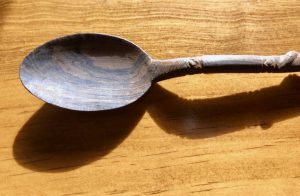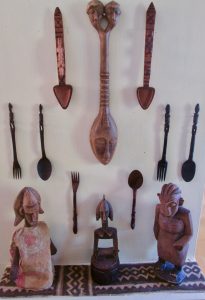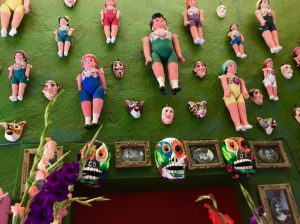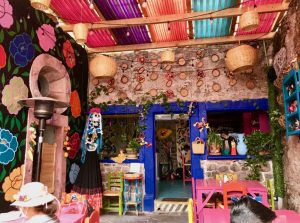If I had a restaurant (this is a common fantasy, I know), I would christen it La Cuchara (the spoon). It would be a cozy, colorful, charming little place, with a one-page menu featuring some of my favorite dishes from all over the world, served in earthy, earthen Mexican pottery.
Why “the spoon”? Well, other than the fact that I love them, especially wooden spoons, and I used to collect them from everywhere I traveled, I would name my restaurant La Cuchara because spoons are universal. They’re one of the things that all of us human beings use.
According to food writer Bee Wilson, author of Consider the Fork: A History of How We Cook and Eat (Basic Books, 2012), “the thing about spoons is that they belong to every human culture in the world. There are fork cultures, there are chopstick cultures, but everyone uses spoons. They go way, way back to the first ancient ancestors using shells latched onto sticks.”
Even in Mali, West Africa, where I lived for three years, and where most people prefer to eat with their fingers, the nomads in the northern regions carry wooden spoons in their pockets when they travel:


Last week, quite by accident, I came upon a restaurant here in San Miguel de Allende, Mexico, that comes closer to my fantasy restaurant than any other I’ve ever known. This one, El Encanto (the charm or spell), in its new location on Relox, is situated just below the hanging baskets I wrote about last week (see my previous post). True to its name, it is charming. It cast a spell on me:


I could see my wooden spoon collection (that is, if I still had all of them) decorating the entryway wall where the dolls are now. I could see colorful fabric – from, for example, Mali, Morocco, as well as Mexico – overhead. I could see, in addition to such Mexican classics as enchiladas verde con pollo (chicken enchiladas with green sauce), a Moroccan lamb tagine with couscous, a West African beef and peanut stew with rice, and a French salade niçoise with grilled fresh tuna on the menu.
But this is just a fun dream, of course.
I like to play such games now and then, like private parlor games or creative writing prompts, using what-ifs:
- What if I had a restaurant? What would I call it and what would it be like? (See above)
- What if I were to change my first name? What name would it be? (Something French and sibilant, like Simone)
- What if I were to pursue a PhD? What field would I choose and why? (Cultural Anthropology – endlessly fascinating)
- What if I had to move to another country? Which country would it be and why? (Morocco – also endlessly fascinating).
At this point in life, though, these what-ifs become roads that will likely never be traveled, and that’s quite all right with me. I can visit my new favorite restaurant El Encanto and be charmed by it as often as I please, without the stress of being in that business. I can play home movies in my mind of my earlier world travels. I can read lots of books on the subject of cultural anthropology. I am grateful for my many blessings and thankful to be where I am now.

